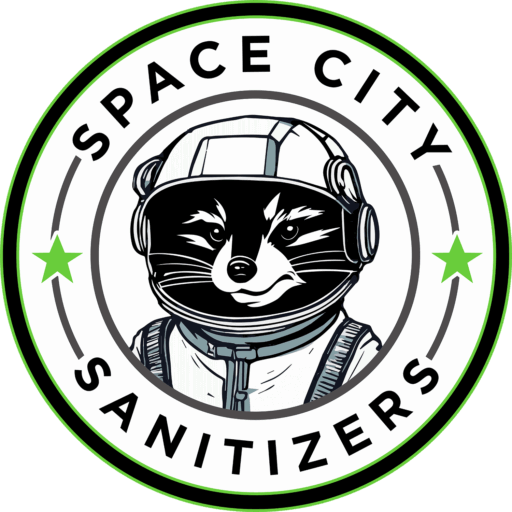Our homes reflect our lifestyles, habits, and mental well-being. While some level of messiness is normal, excessive accumulation of items can become a problem. But how do we differentiate in clutter vs hoarding? While both involve an overabundance of possessions, the impact they have on daily life and mental health varies significantly. Understanding the key differences between hoarding and clutter is essential for maintaining a safe and organized home.
This blog will walk you through the definitions, causes, and symptoms of cluttered spaces and hoarding, how they impact your overall health, and practical strategies for managing them.
Key Takeaways
- Clutter is messy but manageable; hoarding is a mental health disorder.
- Clutter results from habits; hoarding stems from emotional distress.
- Both pose health risks like allergens, pests, and fire hazards.
- Decluttering routines keep clutter in check.
- Hoarding needs professional help and therapy.
- Space City Sanitizers restores clean, safe spaces!
What is Clutter?
Clutter is defined as the disorganized piles of objects filling the same place that is meant for other uses like floor, hallway, etc. While it may appear daunting, clutter is typically a result of everyday habits and can be addressed with time and effort. It is a temporary issue that can happen during moving or cleaning.
Common causes and symptoms of clutter
- Items pile up when there’s no designated space for them, indicating a lack of organization.
- Putting off cleaning tasks leads to the gradual buildup of clutter.
- Sentimental items make it hard to let go.
- Purchasing unnecessary items that add to the mess, means impulsive buying.
- Sometimes due to busy lifestyle, limited time for cleaning results in clutter accumulation.
Some examples of household clutter are – piles of magazines, scattered clothes in the bedroom, unused kitchen gadgets, or an overcrowded drawer. Although clutter is typically manageable, it can negatively affect mental clarity and productivity if left unchecked.
What is Hoarding?
The extensive stage of clutter where it makes it hard for you or others to carry out their normal life, you have made your way to hoarding. Many people don’t know if they have this problem. But it is a must to seek professional help for those with a hoarding disorder.
Characteristics of hoarding are –
- Finding it difficult to discard possessions.
- Emotional distress when attempting to discard items.
- The accumulation of items has reached the point that living spaces have become unusable.
Common Causes and Symptoms
- Using possessions as a coping mechanism.
- Filling emotional voids with excessive belongings.
- Fear of discarding something that may later be deemed useful.
Clutter vs Hoarding
Let’s find more insights into clutter vs hoarding.
| Feature | Clutter | Hoarding |
| Definition | Disorganization and excess items that can be managed with effort. | Mental disorder characterized by extreme accumulation and inability to discard possessions. |
| Causes | Busy lifestyle, procrastination, overconsumption. | Mental health disorders, trauma, fear of loss. |
| Symptoms | Messy but functional spaces, occasional frustration. | Severe clutter obstructing living areas, extreme distress when discarding items. |
| Impact on Daily Life | Mild inconvenience, but does not prevent normal functioning. | Major interference with home safety, relationships, and daily activities. |
| Manageability | Can be organized with decluttering efforts. | Requires professional intervention and treatment. |
Impacts on Health and Home Safety
- Hoarding gets in the way of your life so much that it creates unsanitary conditions which pose health risks
- Nowadays, hoarding is considered a mental health disorder that causes loneliness and isolation.
- Increased risk of injury.
- Cluttered spaces attract rodents, insects, and moldgrowth.
- Dust, mold, and pet dander accumulate in cluttered environments, causing respiratory issues.
- Excessive hoarding can obstruct pathways, making emergency evacuation difficult.
Tips for Clutter and Hoarding Management
After reading about the difference between hoarding and clutter, let’s find out the tactics to address them. Here are some practical tips:
Managing Clutter
- Adopt a decluttering routine – Set aside time weekly to organize and clean.
- Follow the “one in, one out” rule – For every new item brought in, remove one old item.
- Use storage solutions – Baskets, shelves, and labeled bins can help keep things organized.
- Categorize and donate – If an item hasn’t been used in a year, donate it.
- Create designated spaces – Assign specific spots for frequently used items.
Managing Hoarding
- Seek professional help – Hoarding disorder requires intervention from mental health professionals.
- Start small – Focus on one area at a time to avoid overwhelming emotions.
- Use a support system – Friends and family can provide encouragement and accountability.
- Cognitive Behavioral Therapy (CBT) – Therapy can help change hoarding behaviors.
- Professional Cleaning and Sanitizing Services – When hoarding has created unsafe conditions, professional cleaning services can help restore a livable environment. One prominent name in such field is Space City Sanitizers, which handles hoarding and clutter situations professionally and ensures peace of mind. So, relying on professional Hoarding Cleanup Services is advisable if you are dealing with the significant risks of hoarding.
Conclusion
Understanding the difference between clutter and hoarding is crucial for addressing excessive accumulation effectively. While clutter can be managed with regular cleaning and organization, hoarding requires professional intervention due to its psychological roots. Left unchecked, both can pose significant risks to health, safety, and overall well-being.
If you or a loved one are struggling with clutter or hoarding, Space City Sanitizers is here to help. Our expert cleaning team provides compassionate and thorough sanitization services to restore cleanliness and safety to your home. Don’t let clutter take over your life—contact Space City Sanitizers today for a fresh start and schedule a professional cleaning service.
